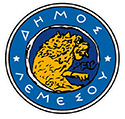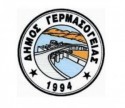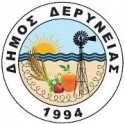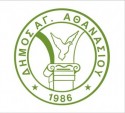The Commission has proposed to the Council to grant an additional €3.7 billion of financial assistance to six Member States under SURE, the €100 billion instrument designed to protect jobs and incomes affected by the COVID-19 pandemic. The proposals follow formal requests for additional financial assistance under SURE submitted by Belgium, Cyprus, Greece, Latvia, Lithuania and Malta on top of the support that the Council has already approved.
After assessing the requests submitted by the six Member States, the Commission proposes to the Council to approve the additional financial assistance specified below. This brings the total financial assistance proposed by the Commission under SURE to €94.3 billion for 19 Member States.
| Additional support | Total support | |
| Belgium | €394 million | €8.2 billion |
| Cyprus | €125 million | €604 million |
| Greece | €2.5 billion | €5.2 billion |
| Latvia | €113 million | €305 million |
| Lithuania | €355 million | €957 million |
| Malta | €177 million | €421 million |
This additional support will assist the six Member States in tackling the continued severe socio-economic impact of the crisis in light of the resurgence of infections and the containment measures introduced in response to it. The evolution of the health and economic situation has resulted in a further increase of public expenditure related to measures designed to protect workers and public health. These additional measures, and the extension of existing ones, qualify for support under SURE.
After the top-ups proposed today, SURE can still offer €5.7 billion of financial assistance and Member States can still submit requests for support. The Commission stands ready to assess further top-up requests from Member States for existing or new measures in response to the resurgence of COVID-19 infections and new restrictions.
SURE is a crucial element of the EU’s comprehensive strategy to protect citizens and mitigate the social and economic damage of the coronavirus pandemic. The Commission’s first bi-annual report on SURE, published last week, found that the instrument has been successful in reaching its goal in its first six months of operation. It has supported 25-30 million workers and between 1.5 and 2.5 million firms, while saving governments around €5.8 billion in interest payments through the first four disbursements of SURE funding up to 2 February 2021.
Members of the College said:
Valdis Dombrovskis, Executive Vice-President for an Economy that Works for People said: “This extra financial assistance will help EU countries to protect their people and workforce amid the relentless pressure of the pandemic. Europe will continue to support its workers as they endure enormous insecurity so that together, we can overcome this crisis and relaunch our economies. This is the reality of EU solidarity: making sure that no one is left behind.”
Nicolas Schmit, Commissioner for Jobs and Social Rights, said: “As many parts of Europe are experiencing a third wave of COVID-19 infections, the EU continues to show solidarity by deploying the SURE instrument to protect incomes and preserve jobs. Thanks to the additional €3.7 billion in low-cost loans that the EU is providing those six Member States today, hundreds of thousands of families will be guaranteed an income at a time when work is uncertain.”
Paolo Gentiloni, Commissioner for Economy said: “As the effects of the pandemic continue to weigh on our economies, we are today proposing a further €3.7 billion in financing for national efforts to support workers in six EU countries. I’m proud of the European success story that is SURE.”
Next steps
Once the Council approves these proposals, the financial assistance will be provided in the form of loans granted on favourable terms from the EU to the six Member States. These loans will help Member States to cover the costs directly related to the financing of national short-time work schemes, and other similar measures, in particular for the self-employed, as well as health-related measures.
Background
The Commission proposed the SURE Regulation on 2 April 2020, as part of the EU’s initial response to the pandemic. It was adopted by the Council on 19 May 2020 as a strong sign of European solidarity, and became available after all Member States signed the guarantee agreements on 22 September 2020. The first disbursement took place five weeks after SURE became available.
For More Information
Commission proposals for SURE support
Report confirms SURE’s success in protecting jobs and incomes
Commission report on the implementation of SURE
Press contact
· Marta WIECZOREK
Phone
+32 2 295 81 97
· Enda MCNAMARA
Phone
+32 2 296 49 76
The European Commission is committed to personal data protection. Any personal data is processed in line with Regulation (EC) 2018/1725. All personal information processed by the Directorate-General for Communication / European Commission Representations is treated accordingly.





